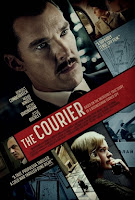There's lots of good stuff in this book, and much that I wasn't really aware of. I was aware that Protestant Christianity was a lot keener on "the Old Testament" than the other flavours, and that consequently there has often been a weird kind of philosemitism about it. Protestants, especially the English Puritans, often identified themselves with the Israelites. And that led to a kind of romantic notion of restoring the Jews to the Holy Land, either in fulfilment of millenarian prophecies or as a good thing in its own right. This made some Protestants proto-Zionists before there was any Jewish Zionist movement, and made politicians steeped in that kind of Christianity particularly receptive to both philosemitic ideas and plans for the appropriation of Palestine from the Ottomans.
Lots of this was going on before there was any kind of Jewish Zionism, but it did make British and American politicians in particular receptive to the Zionist movement when it emerged. The same romantic notions of Jews meant that the same politicians who were proto-Zionists didn't like actual Jews very much; they failed to live up to the image of ancient Israelites, and they wanted emancipation and equal rights rather than national restoration.
Where I think the book falls down is that its picture of Jewish Zionism, when it emerges, is utterly divorced from the context in which Zionism grew among Jews. There's no account of the upsurge of antisemitism in the Russian Empire, and then in its Polish successor state. The word "pogrom" does not appear in the index, and there's no reference to the May Laws of 1882. The Nazis mainly appear in terms of the Ha'avara agreement with German Zionists, and this is - as is so often the case - represented as if it were a convergence of equals. We learn that the British initially promoted and encouraged Jewish immigration to Palestine, and that they later put up quotas to stop too many Jews arriving; but although the book talks about other western countries refusing to take Jewish refugees, there's not much recognition that the Jews who were trying to migrate to Palestine were desperate refugees too, not pith-helmeted colonists.
I note in passing that there's nothing about the Communist honeymoon with Zionism either, though there is a discussion about the influence of Zionists (again via Christians) on the American labour movement.









.jpg)










